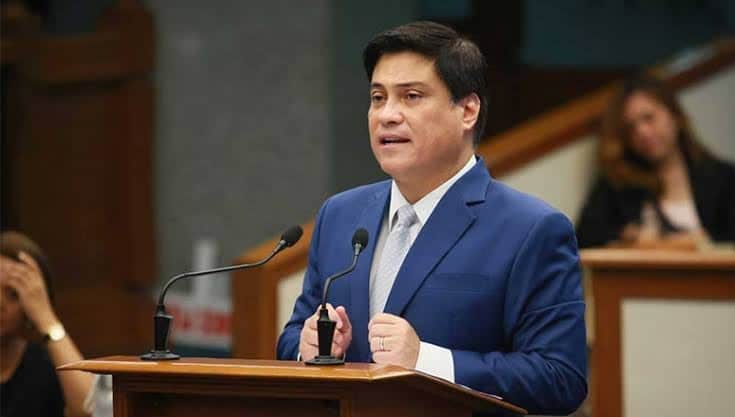Senate President Juan Miguel “Migz” Zubiri appealed to fellow members of the International Parliamentarian Union (IPU) to be “facilitators of peace” amidst all conflict in different parts of the world, even in the West Philippine Sea (WPS).
In his speech at the IPU General Debate in Geneva, Switzerland, Zubiri rallied the IPU to build on its legacy of “bold thinking and brave action” to spur parliaments of the world in crafting strategies to silence the guns this time.
“The raging strife that dot the world underscore the mission that we parliamentarians should pursue on behalf of mankind,” he said.
“And that is to mount a campaign to pause war, to stop the bloodshed and end the suffering of innocent civilians whose lives have been disrupted but whose hopes for peace have not been dashed, by war,” Zubiri declared.
“We in the IPU have a rich heritage that inspires confidence that, if united and determined, we can, as our predecessors had done, be facilitators of peace.”
Zubiri then appealed to the IPU to stand with the Philippines as it promotes freedom of navigation and adherence to international rules-based order in the WPS.
In the WPS, he said, a number of geopolitical analysts predicted it could be a major flashpoint in the region.
“Let me emphasize that the Philippines has consistently adhered to international rules-based order, ensured freedom of navigation in the area and practiced restraint in dealing with the harassment and provocations of our neighbor in the north.”
The senator was referring to China’s constant illegal and bullying activities in the WPS.
“It takes a community of nations to preserve and nurture peace. Thus, we appeal to the international community to support and stand firm with us in promoting freedom of navigation and adherence to international rules-based order in the West Philippine Sea.”
In expounding his call for peace, Zubiri said the IPU was once a fledgling union that became a powerful force giving birth to the United Nations.
“Ending the misery of people caught in the crossfire of conflicts has become our common parliamentary agenda number one,” he said.
“For 100 years, the Philippines has allied itself with the cause of peace. In 1925, when we sent our first delegation to the IPU conference, we already manifested our country’s position to give primacy to diplomacy as the means to resolve conflicts,” he recalled.
Zubiri related that through the years, the Philippines has subscribed to the IPU’s foundational principle of renouncing war as a foreign policy tool, a belief enshrined in its fundamental law, the Constitution.
“We come here today to reaffirm our adherence to that tenet. We come here today as a nation that also suffers from the fallout of wars far from our shores. Local conflicts have global effects. Whether they are in Europe, in the Middle East, or in Africa, theaters of war threaten all people, and our country is no exception,” he explained.
Zubiri said that for one, geopolitical tensions damp growth prospects of economies, slowing their recovery from the ravages of the pandemic. Conflict-caused trade disruptions trigger imbalanced trade deficits and create an inflationary environment that harms the poor.
“This makes it harder for countries with constrained fiscal resources, mounting debt and no fiscal buffer to weather the crisis.”
“Global food security is also harmed, pushing food prices up, and punishing populations teetering on hunger.”
He added that supply chain disruptions can “shut down factories, empty store shelves, spike oil prices, and leave food on the table more expensive.”
“In the midst of these uncertainties, I strongly believe that the IPU can span trenches of discord and serve as a bridge of peace and understanding,” Zubiri stressed.
“Let me be honest — finding common ground is a mission not for the easily discouraged. But as parliamentarians we have been able, in our halls and in this Union, to break impasse and reach compromise in the past. When such is pursued with a healthy respect of views, and a deeper understanding of the circumstances to be addressed, consensus can be found.”
He cited the Philippines’ ending of the long conflict in Mindanao.
“For decades, the island of Mindanao in Southern Philippines has been plagued by violence and strife. The conflict between our government and the secessionist movements had a huge toll, displacing over two million people and raking up a death toll of over 120,000,” he bared.
“And I am proud to say that our Congress played a pivotal role in the cessation of hostilities, by passing the milestone Bangsamoro Organic Law, which recognized the autonomy of the Bangsamoro people and gave us a mechanism for correcting the historical injustice that they have long faced,” he noted.
“Swords have been pounded into plows, and a land rich in resources and teeming talent are irreversibly marching toward shared prosperity.”

































